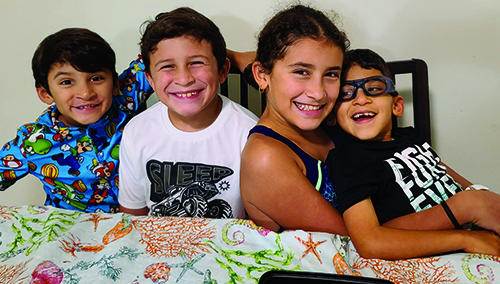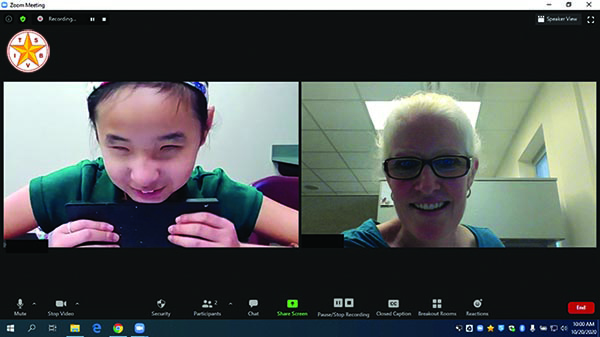Dealing with uncertainty, inconsistency in my schedule, frustrations due to technology difficulties, lack of support for my students at home. I just feel discouraged sometimes. —Multiracial female TVI
While some vision professionals were trying to remain upbeat and reported some positives regarding their own social-emotional well-being, most vision professionals were overwhelmed, stressed, exhausted, depressed, frustrated, or even confused. Some vision professionals shared that they were working with counselors or other professionals; others were left feeling like a first-year teacher. In general, most vision professionals were having a great deal of negative psychological impact from having to teach during the COVID-19 pandemic. There were negative feelings towards having to teach online and missing the in-person interactions with their students and co-workers.
Vision professionals also reported on the social-emotional impact of the COVID-19 pandemic on their students. Vision professionals were concerned about their students’ emotional well-being regarding lack of interaction with peers and regression of skills. The TVIs and O&M specialists reported some positive benefits for students. For example, for students who experienced bullying in school, the shift to online education was viewed positively. Numerous vision professionals spoke about the resiliency of children and seemed hopeful that there would not be negative long-term emotional impacts on their students.
My child is receiving education through a hybrid approach. Since he has just moved into middle school, his current teachers DO NOT know him. At the beginning of the year, our district was fully remote. That changed after the first month of school. They use Teams platform with meetings either through Teams or Zoom. My child also needed to use textbooks and access documents that are loaded into the system. This has been nothing but an anxiety-provoking experience where he is in tears very often. He has challenges manipulating multiple devices and electronic systems. Most of the documents and platforms he needs to access do not allow for enlargement. He is having difficulty completing his work due to stress and challenges focusing. His anxiety is through the roof. —White female family member of a child with low vision, 13 to 15 years old
The researchers did not specifically ask family members about their own experiences related to the social-emotional impact of the pandemic on them or their children. However, in the responses to open-ended questions throughout the survey, many family members indicated that both they and their children were experiencing stress and were overwhelmed. Having to manage all of their children’s online learning while simultaneously navigating the challenges associated with COVID-19 was proving to be an immense challenge for many families. Family members reported being angry, upset, frustrated, and feeling as if they had too much on their plates.
Family members of preschool and school-age students were asked to select their level of agreement with the statement: I believe my child is growing socially in the same way they would if COVID-19 had not interrupted school. Of the 177 family members who responded, the mean was 1.84 (SD=0.95).1 The level of agreement participants had with this statement fell between “Strongly disagree” and “Disagree.” Children’s social-emotional well-being was a great concern for family members.
16. The mean (M) is derived by averaging the participants’ ratings—from “Strongly disagree” (1) to “Strongly agree” (4). The larger the standard deviation (SD), the greater the spread from the mean of the participants’ ratings.

